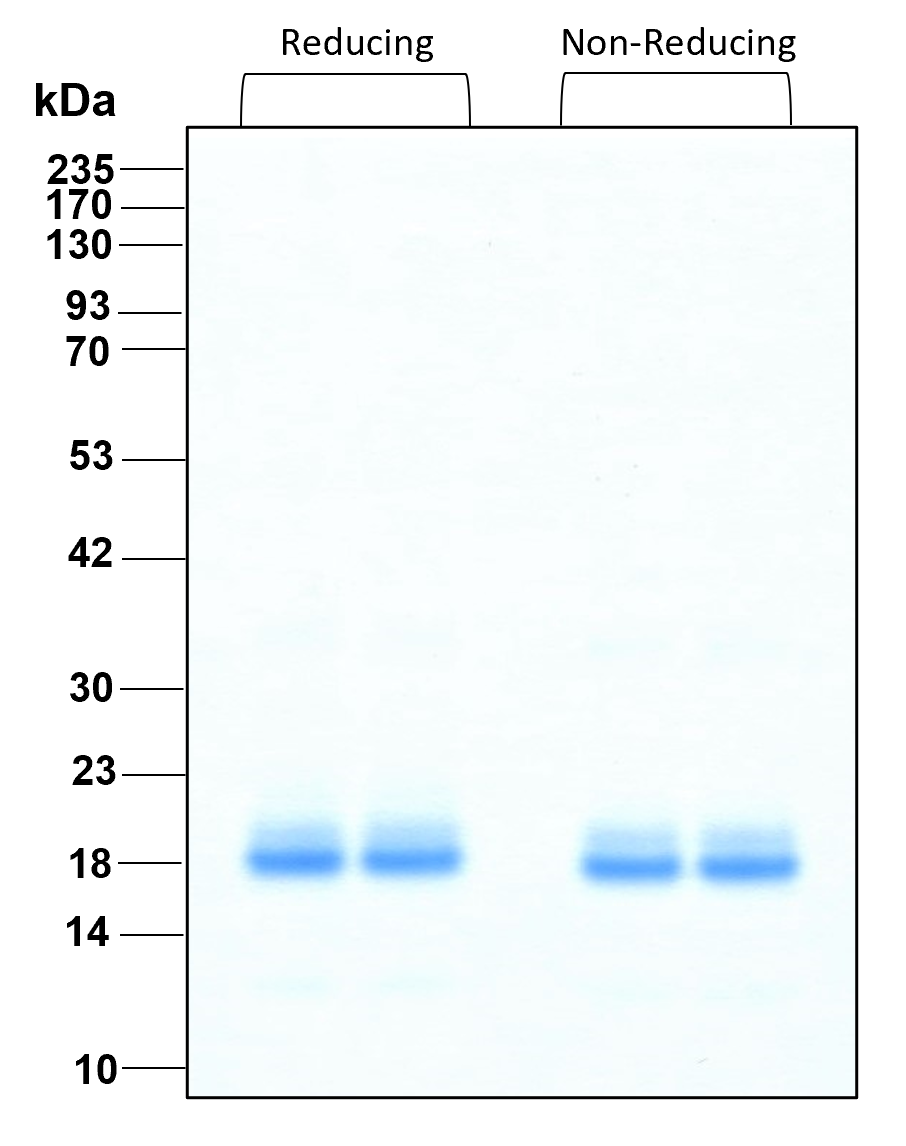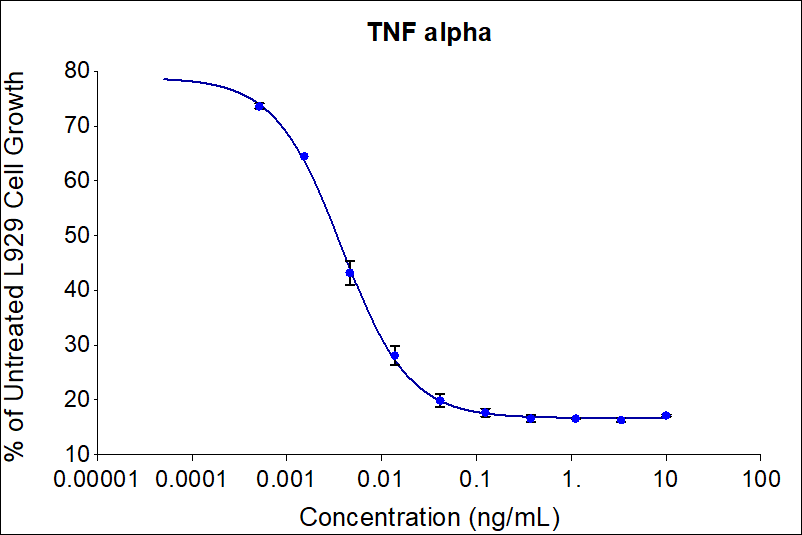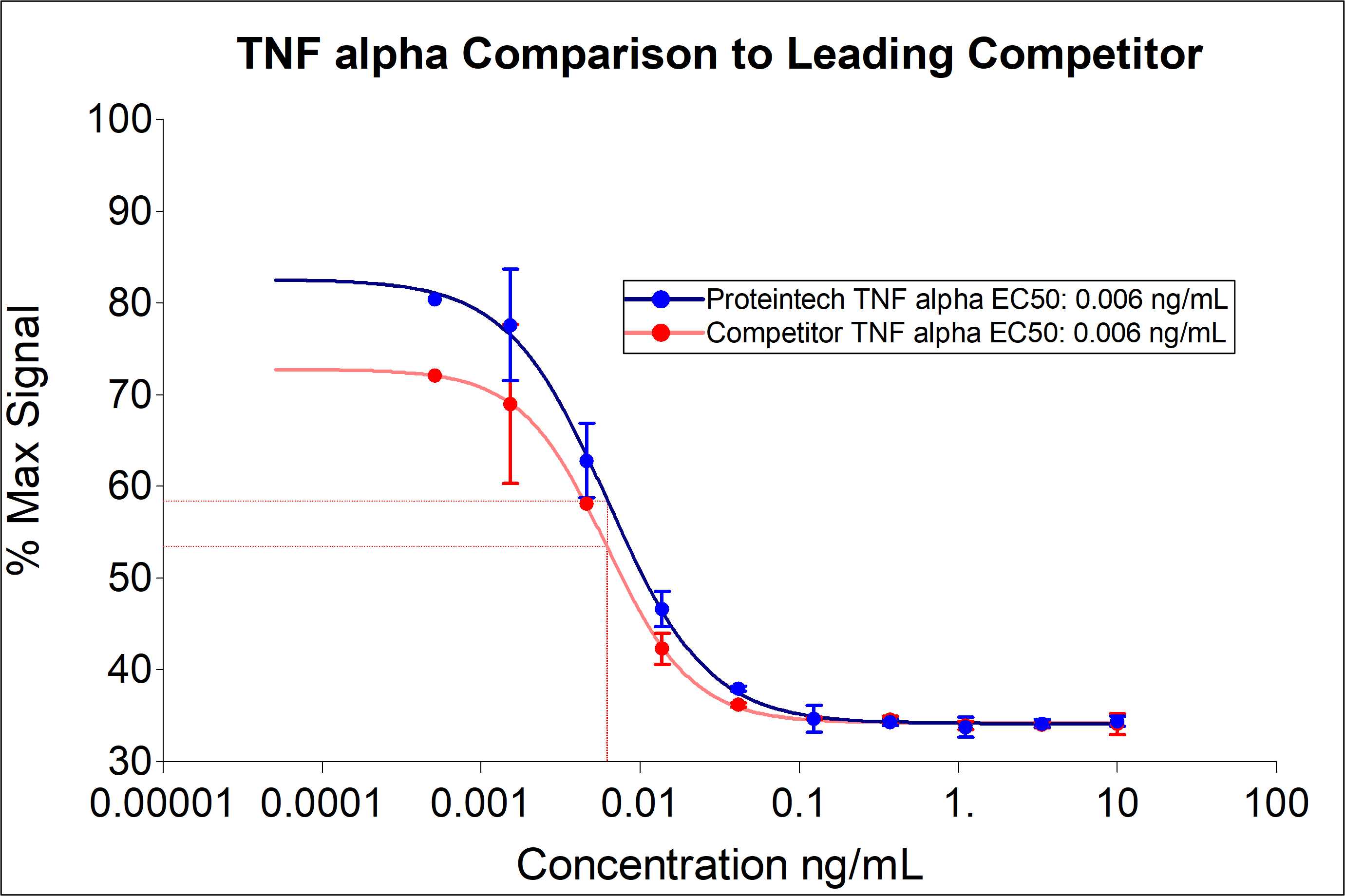Validation Data Gallery
Technical Specifications
| GeneID | 7124 |
| Species | Human |
| Expression | HEK293 |
| Activity(Primary) | 0.002-0.026 ng/mL |
| Specific Activity | minimally 7.00 x 106 IU/mg |
| Purity | >95% |
| Endotoxin | <1 EU/µg |
| Accession Number | P01375 |
| Molecular Mass | 17-20 kDa reduced and non-reduced, non-disulfide bonded homotrimer, glycosylated |
| Formulation | 1x PBS, See Certificate of Analysis for details |
| Species Reactivity | human,mouse |
Stability and Reconstitution
| Stability and Storage | Product Form | Temperature Conditions | Storage Time (From Date of Receipt) |
|---|---|---|---|
| Lyophilized | -20°C to -80°C | Until Expiry Date | |
| Lyophilized | Room Temperature | 2 weeks | |
| Reconstituted as per CofA | -20°C to -80°C | 6 months | |
| Reconstituted as per CofA | 4°C | 1 week | |
| Avoid repeated freeze-thaw cycles. | |||
| Reconstitution | Briefly centrifuge the vial before opening. It is recommended to reconstitute the protein to 0.2 mg/mL in sterile 1x PBS pH 7.4 containing 0.1% endotoxin-free recombinant human serum albumin (HSA). Gently swirl or tap vial to mix. |
Background
TNF, as also known as TNF-alpha, or cachectin, is a multifunctional proinflammatory cytokine that belongs to the tumor necrosis factor (TNF) superfamily. It is expressed as a 26 kDa membrane-bound protein and free soluble 17 kDa monomer, which forms homotrimers in circulation. It is produced mostly by activated macrophages, CD4+ lymphocytes, NK cells, neutrophils, eosinophils, and neurons. This cytokine is involved in the regulation of a wide spectrum of biological processes including cell proliferation, differentiation, apoptosis, lipid metabolism, and coagulation (PMID: 20194223).
Synonyms
Cachectin, DIF, TNF, TNF a, TNF alpha, TNFA, TNFSF2, Tumor necrosis factor
Publications
| Species | Title |
|---|---|
Nat Cell Biol A20 promotes metastasis of aggressive basal-like breast cancers through multi-monoubiquitylation of Snail1. | |
ACS Nano Coassembly Nanomedicine Mediated by Intermolecular Interactions Between Methotrexate and Baricitinib for Improved Rheumatoid Arthritis Treatment | |
Acta Pharm Sin B Intravenous route to choroidal neovascularization by macrophage-disguised nanocarriers for mTOR modulation. | |
Hepatology Toll-like receptor 2-mediated innate immune response in human nonparenchymal liver cells toward adeno-associated viral vectors. | |
Cell Death Dis LncRNA UCA1 promotes keratinocyte-driven inflammation via suppressing METTL14 and activating the HIF-1α/NF-κB axis in psoriasis | |
Mater Today Bio Decellularized adipose matrix hydrogel-based in situ delivery of antagomiR-150-5p for rat abdominal aortic aneurysm therapy |
Reviews
The reviews below have been submitted by verified Proteintech customers who received an incentive for providing their feedback.
FH Roy (Verified Customer) (11-05-2025) | Works great in stimulating the NF-kB pathway in jurkat cells (10ng/mL).
|
FH Ben (Verified Customer) (01-30-2025) | This product worked well to enhance ROS production in cultured cells.
|
FH Ashish (Verified Customer) (10-21-2024) | Our lab uses this product in cell culture as one of the necroptosis-inducing agents.
|
FH Susanne (Verified Customer) (08-12-2021) | The product was used to enhance the production of ROS.
|



